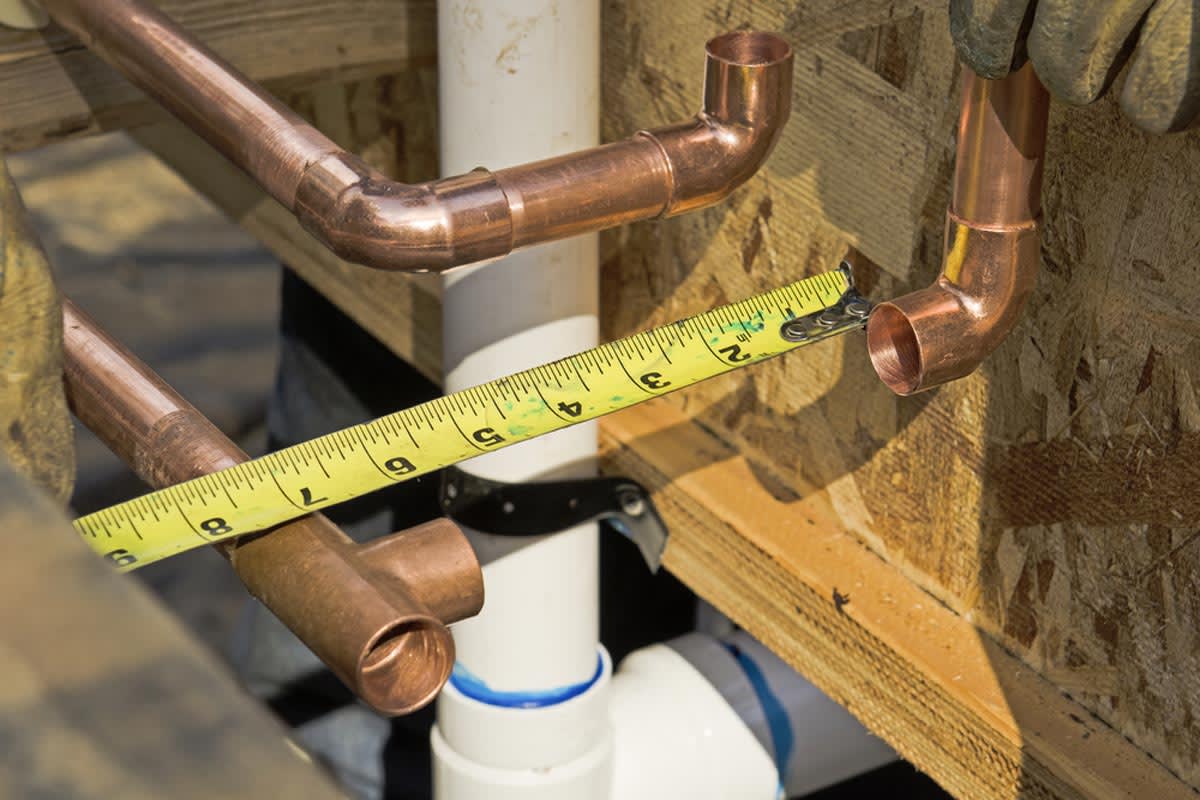Just how do you feel about Essential DIY Bathroom Plumbing Tips Every Homeowner?

For brand-new property owners, understanding and keeping bathroom plumbing can conserve both time and money by protecting against pricey issues down the line. Right here are some necessary washroom pipes tips to aid you keep everything running smoothly.
Acquaint Yourself with the Key Shut-Off Valve
Understanding where the main water shut-off shutoff is located in your home is vital. This permits you to quickly switch off the water in case of major leakages or during pipes emergencies, avoiding comprehensive water damage.
Regularly Check for Leaks
Little leaks can lead to large troubles. Regularly examine under sinks, around bathrooms, and near plumbing components for any type of indicators of leakages. Seek wetness, tiny drips, or rust. Catching and fixing leaks early can protect against extra severe damage and save water.
Don't Neglect Slow Drains Pipes
If your sink or bath tub is draining slowly, it's frequently a sign of a blockage developing. Resolving this early can protect against a complete blockage. Utilize a plunger or a plumber's snake to clear out debris. Stay clear of using chemical drainpipe cleansers as they can damage your pipes over time.
Know What Not to Flush
Commodes are not waste disposal unit. Prevent flushing anything apart from bathroom tissue and human waste. Products like wipes, feminine hygiene items, and cotton swabs should be gotten rid of in the trash to stop blockages and sewer backups.
Mount Strainers in Drains
Area strainers in your sink and tub drains to capture hair and other debris prior to they enter your plumbing system. Cleansing the strainers regularly will assist prevent buildup and maintain water flowing easily.
Maintain Your Hot Water Heater
Ensure your hot water heater is set to an ideal temperature level (typically about 120 degrees Fahrenheit) to prevent hot and reduce power use. Flush the tank annually to eliminate sediment buildup, which can lower the performance and lifespan of your heater.
Upgrade Your Fixtures
If your home has older components, consider upgrading to more effective versions. Modern commodes, showerheads, and faucets are created to make use of less water while offering excellent stress, which can considerably minimize your water costs and environmental impact.
Beware with Do It Yourself Plumbing Repair Works
While it's appealing to take care of all home repair work by yourself, beware with pipes. Some concerns might require expert expertise, particularly if they entail major water lines or sewage system repairs. Hiring an expert can often be more affordable than DIY, particularly if it stops additional damages.
Get Ready For Winter
Protect your pipes from cold throughout winter by shielding pipelines in unheated locations like basements, attics, and garages. Throughout severe cool, allow cold water drip from taps offered by subjected pipelines to aid stop cold.
Arrange Routine Maintenance
Think about organizing annual assessments with an accredited plumbing professional. They can detect concerns that you may miss, such as concealed leaks or deterioration on pipes and fixtures. Normal upkeep assists expand the life of your pipes system and can prevent emergency situations.
Verdict
Recognizing and maintaining your home's washroom pipes can stop many typical concerns. By adhering to these essential tips, you can ensure your washroom stays functional and reliable, conserving you time and money in the long run.
5 Plumbing Tips for First-Time Homeowners
Know How to Shut Off the Water
In most homes, the water can be shut off at two places: at the appliance or fixture itself, and for the whole house. For instance, look under your sink or behind the toilet. See those little knobs that connect with the pipes? Those are the shut off valves for those fixtures. Simply turn them until the water is off. The main shut off valve (which controls water throughout your entire home) will be outside, where the water feeds into the structure. You might need a dedicated tool, such as a water shut-off key, to shut off the water at the main.
Build an Emergency Plumbing Kit
Everyone knows how important it is to have a high-quality plunger around the house. But there are other things that can help you out when issues arise with the pipes. Building an emergency plumbing kit to solve issues on your own is part of any list of basic plumbing tips. Consider adding these things to create a basic plumbing kit:
Adjustable wrench Tongue-and-groove pliers Screwdrivers Plumber’s tape Pipe sealant Duct tape Set of hex keys Clip light for working under cabinets Auger and hand snake Do a Little Research
Many small leaks can be handled by replacing a small part of the piping system, tightening part of a faucet, or even changing out an aerator. Take the time to browse how-to articles for common plumbing problems, such as a running toilet or slow-draining sink. You might be surprised to find how easy it can be to do simple things yourself, like replace a valve in the back of the toilet.
Keep it Simple With No Chemicals
If you have a clog, you might be tempted by the promises of liquid drain cleaner. While this might work at first, it actually causes more damage deep in the pipes, eventually creating even more problems down the road.
Instead, try using baking soda and vinegar to create a strong fizzing effect that can help break up clogs and clear gunk from drains. Follow it with boiling water to clean the pipes even more thoroughly.
Take Care of Your Garbage Disposal
Be cautious about what you put down the disposal. Avoid pouring in fats, oils, and grease, as these are a surefire way to get a clog. Beware of certain foods too, such as celery or bones, as they can lodge in the works. Always run the disposal with water flowing.
https://modernize.com/homeowner-resources/other/10-plumbing-tips-for-first-time-homeowners

Quote